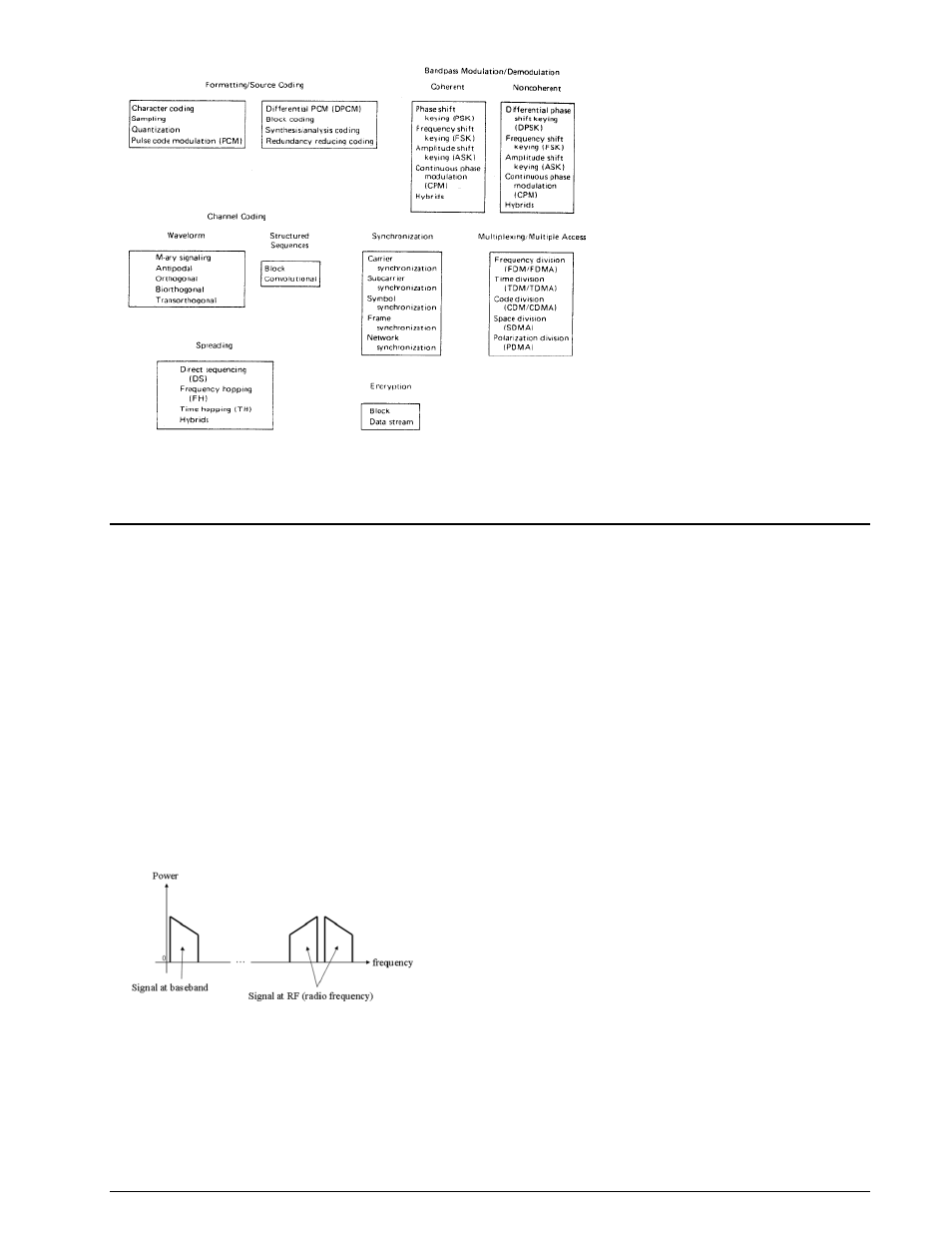Telegraph speed, bit rate, baud rate, symbol rate – Wavecom W61PC V7.5.0 User Manual
Page 105

WAVECOM Decoder W61PC/LAN Manual V7.5
Fundamentals of Radio Data Transmission
95
Basic digital communication transformations (from B.Sklar, “A Structured Overview of Digital Communica-
tions”, IEEE Commun. Mag, August 1983).
Telegraph Speed, Bit Rate, Baud Rate, Symbol Rate
The basic building block of data and telegraph signalling is the bit, a word derived from “binary digit”, so
called because it can assume only two states, “Current” (logical “1”, Mark or lower frequency, positive
voltage) or “No Current” (logical “0”, Space or high frequency, negative voltage).
The bit rate is the number of bits transmitted per second, measured in bps.
One or more bits can be merged into a single signaling unit called a symbol.
The symbol rate formerly known as the telegraph speed or the baud rate is the inverse of the duration
of one single signaling unit and is measured in symbols/sec or Baud (Bd). So if one channel signaling
unit has a duration of 10 ms, then the telegraph speed is equal to 1/0,01 = 100 Bd. If the channel has on-
ly two signaling states, e.g. 0 V and +5 V, bit rate is equal to baud rate, i.e. 100 bps. If four levels were
used, the baud rate would still be 100 Bd, but now the bit rate would be doubled to 200 bps, each baud
representing two bits.
Signaling states identify the different values a signaling unit may assume. In case of binary signaling there
are two states, but many systems utilize more. For radio transmission, the levels may be represented by
frequency, phase, amplitude levels or a combination thereof (see the sections on channel coding and
modulation).
A baseband channel or low pass channel (or system, or network) is a channel (e.g. a telecommunications
system) that covers a frequency range from close to or even zero Hz, i.e. DC, up to the highest signal fre-
quency. Examples are serial cables and local area networks (LANs). Baseband signals may be used to
modulate carrier frequencies.